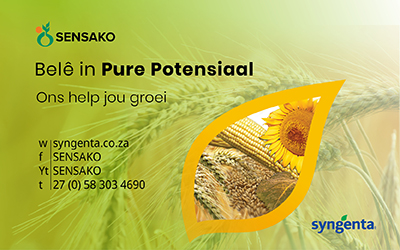The Maize Trust bursary scheme is a financial support scheme that is aimed at providing funding for students pursuing undergraduate and postgraduate studies in the field of maize technology in South Africa. The bursaries are funded by the Maize Trust, which is a statutory levy-based organisation that supports research and development activities promoting the growth and sustainability of the South African maize industry.
SA Graan/Grain spoke to three beneficiaries of the bursaries who recently graduated to find out what their research entailed and what their future plans are.
How to apply
To be eligible for a Maize Trust bursary, students must be South African citizens or permanent residents, and they must be enrolled or accepted for studies at a recognised South African tertiary institution. They must also demonstrate academic excellence and show a commitment to the maize industry. The amount and duration of the bursary vary depending on the level and nature of the course of study. Successful applicants may receive funding for tuition, accommodation, and other related expenses.
For more information about the Maize Trust bursaries and how to apply, interested students can visit the Maize Trust website (maizetrust.co.za) or contact the trust directly.
 Balungile Dlulisa
Balungile Dlulisa
With a BSc Agricultural Science honours degree in Plant Breeding from the University of the Free State, Balungile applied for a Maize Trust bursary to complete her MSc in Agriculture. During her studies, she researched the effect of elevated CO2 on the growth, development and post-harvest parameters of sweetcorn (Zea mays L. var. saccharata) as a significant global horticultural commodity.
The project was driven by concerns related to escalating greenhouse gases in the atmosphere and elevated temperatures which affect plant biomass and yield in C4 maize crops. Her future plans include a PhD study on how crop phytochemicals respond to elevated CO2 concentrations during their formation. Will the elevation increase the pH concentration or cause declines in sweetcorn which lead to excessive acidity during post-harvest evaluation?
 Gerhard Engelbrecht
Gerhard Engelbrecht
Gerhard completed his PhD in Environmental Sciences in 2022 with a bursary from the Maize Trust. The focus of his post-graduate studies has mainly been the biological control of plant-parasitic nematodes (PPN), such as Meloidogyne and Pratylenchus spp. ‘My PhD studies focused on the occurrence of PPN community composition associated with soybean/maize rotations in the Mpumalanga Highveld, while using molecular techniques to identify the presence and distribution of Meloidogyne and Pratylenchus spp. Next generation sequencing (NGS) was used to characterise the bacterial communities in the rhizosphere of these crops.
‘During my studies I realised that I really have a passion for research and that I wanted to do more research with regard to biocontrol and apply it in the agricultural sector. I got the opportunity to work as a research and development specialist at ORO Agri SA, which allows me to do exactly that.’
 Ncumisa Yekelo
Ncumisa Yekelo
By obtaining a bursary from the Maize Trust, Ncumisa was able to complete her MSc in Plant Pathology at the University of KwaZulu-Natal. Her research focused on the use of bacterial endophytes from a medicinal plant (Arctotis arctotoides) as biocontrol agents against Pythium and Rhizoctonia root diseases of maize (Zea mays L.).
Ncumisa is planning to continue her studies. ‘I believe that studying towards a PhD will enhance my research skills and knowledge in plant pathology. Enrolling for a PhD will provide me with various opportunities in the research field – as such I will be able to contribute to the continuing research on management of plant diseases.’



















